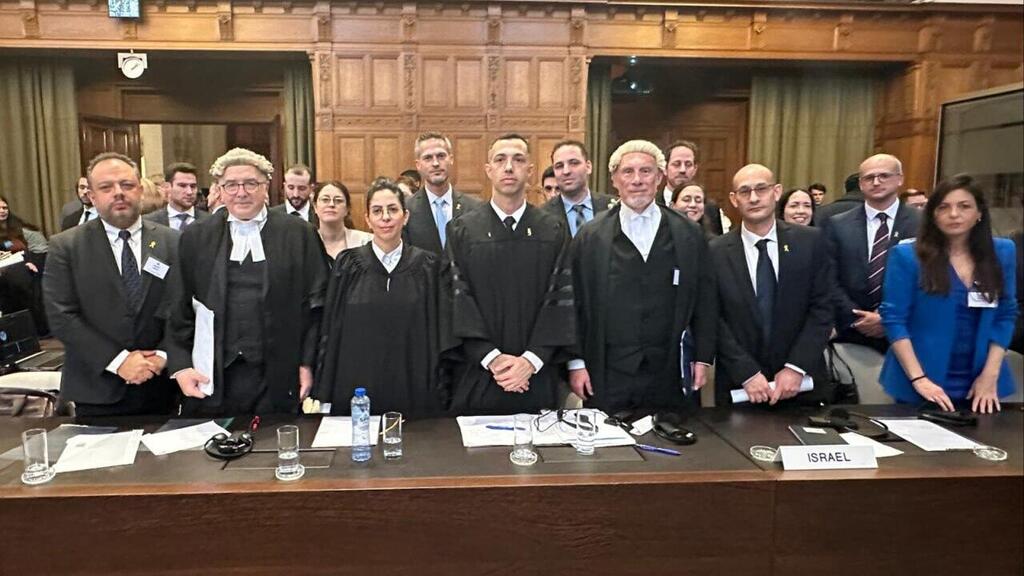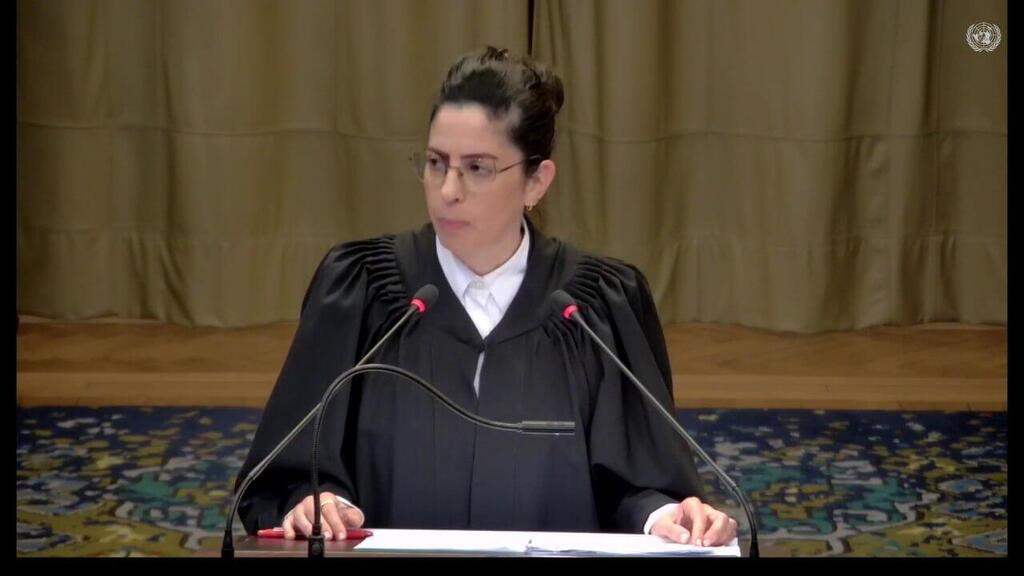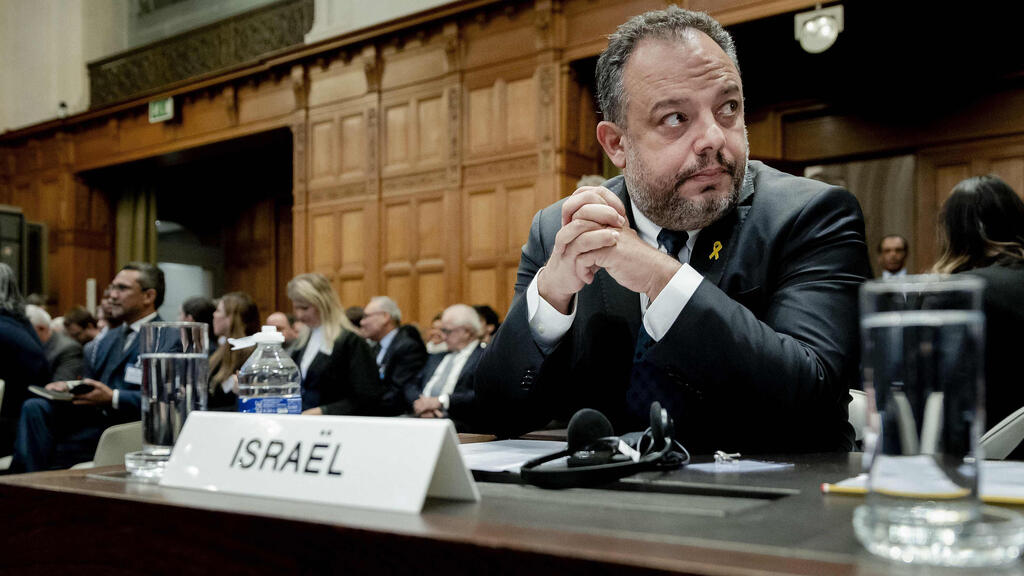Getting your Trinity Audio player ready...
"What would have happened," Christopher Staker asked, if such a case would have been made against the allies in World War II?" His question, one of the more powerful moments during the hearing in the International Court of Justice in the Hague on Friday, was addressed to the panel of judges hearing allegations raised by South Africa, that Israel was committing genocide in Gaza.
Read more:
The Israeli delegation refused to speak to the press before or after the hearing, opting not to give the South African claims more fodder. It rather chose to respond professionally to the accusations, using legal arguments. The South Africans accusation was well prepared but focused exclusively on the suffering of Palestinians.
The Israeli team told the judges that they had been fooled. The data supplied by South Africa regarding for example, food supplied to the Strip or warnings to civilians to escape areas of fighting, were "inaccurate at best," according to Justice Ministry official Galit Raguan, the acting director of the ministry's International Justice Division.
Professor Malcolm Shaw, although appearing dry to some Israeli audiences, did exactly what he was meant to do. He claimed the ICJ had no authority to consider the South African charges because no conflict between the African nation and Israel had been proven, so as to provide the authority to adjudicate such a conflict.
The Foreign Ministry's Legal Advisor Tal Becker gave impressive opening remarks, that combined judicial fundamentals with a presentation of the horrors of the October 7 massacre. The Israelis took care to highlight the fact that they did not regard those atrocities as justification to violate international law.
Raguan provided the information on the military use of every hospital in the Gaza Strip. Step by step the Israelis presented the complex reality of the considerable efforts taken by the IDF not to harm civilians. After she presented the Israeli actions in detail, beginning with establishing a field hospital, through the supply of food, creation of humanitarian corridors for safe passage from the fighting, provision of incubators to hospitals, care taken to avoid harm to hospitals that would be caused by air raids and sending forces on the ground into them and then out, after removing the Hamas threat.
"Would Israel have waited weeks before launching a ground offensive, in order to allow civilians to leave to safety, if it had intended to destroy the Palestinian population?" she asked.
Israel's case was presented less in rhetoric and more in identifying the weakness in the South African case. For example, the dissonance between the claim that Israel was carrying out an intentional genocide, in contradiction to the humanitarian steps taken by Israel. Or South Africa's failure to recognize Israel's right to self defense after the October 7 massacre and the fact that the government in Pretoria had aligned itself with Hamas and in fact condemned Israel even before any attack of Gaza had even begun.
Will any of this help? The bar for justifying an injunction demanding Israel end its fighting in Gaza, is low. All South Africa had to show was that there was a chance of genocide, for such an injunction to be issued. But the Israeli delegation did a good job, especially in explaining to the court the meaning of such a legal action, for any anti-terrorism offensive against groups as cruel as Hamas.





